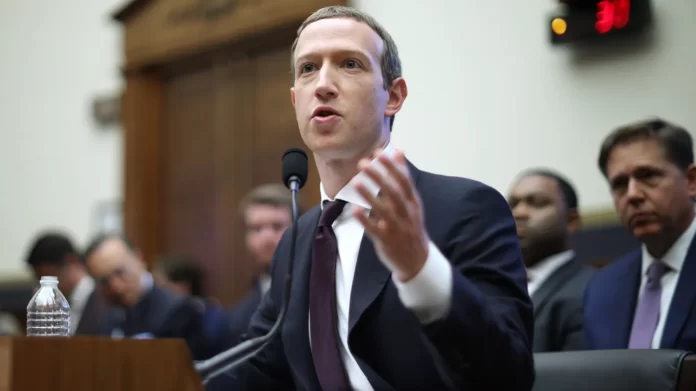Mark Zuckerberg, the co-founder and CEO of Meta Platforms Inc., formerly known as Facebook, has seen a staggering increase in his wealth as Meta’s stock price soared, adding an impressive $27 billion to his net worth. This surge has propelled Zuckerberg’s wealth to surpass that of Microsoft co-founder Bill Gates, making him one of the richest individuals in the world. The meteoric rise in Zuckerberg’s fortune highlights the dominance of tech titans in today’s global economy and underscores the profound impact of digital platforms on wealth creation.
The surge in Meta’s stock price comes on the heels of a strong performance by the company, which reported robust earnings and revenue growth in its latest financial results. Meta’s diversified portfolio of digital platforms, including Facebook, Instagram, WhatsApp, and Oculus, continues to attract billions of users worldwide, driving advertising revenue and expanding its market reach. The company’s strategic investments in emerging technologies such as virtual reality (VR) and augmented reality (AR) further position it for long-term growth and innovation.
For Mark Zuckerberg, the latest wealth milestone represents a culmination of years of entrepreneurial vision and strategic leadership. Since founding Facebook in his Harvard University dorm room in 2004, Zuckerberg has transformed the social networking platform into a global powerhouse, reshaping how people connect, communicate, and consume information online. Despite facing criticism and scrutiny over issues such as data privacy, content moderation, and antitrust concerns, Zuckerberg has remained steadfast in his commitment to advancing Meta’s mission of building community and bringing the world closer together.
The exponential growth in Zuckerberg’s wealth reflects not only the success of Meta as a company but also the broader trend of wealth concentration among tech industry leaders. Alongside Zuckerberg, other tech billionaires such as Elon Musk, Jeff Bezos, and Larry Page have seen their fortunes soar in recent years, propelled by the relentless expansion of digital technologies and the increasing digitization of everyday life. This trend underscores the outsized influence wielded by tech titans in shaping the future of business, innovation, and society at large.
However, the staggering wealth accumulation of tech billionaires also raises questions about inequality, accountability, and the societal impact of concentrated economic power. Critics argue that the growing wealth gap between tech elites and the rest of society exacerbates social disparities and undermines the principles of economic fairness and social justice. Moreover, concerns have been raised about the unchecked influence of tech giants over political discourse, media consumption, and public discourse, leading to calls for greater regulation and oversight of the tech industry.
In response to these concerns, Mark Zuckerberg and other tech leaders have emphasized their commitment to philanthropy and social responsibility, pledging to use their wealth for the greater good and address pressing global challenges. Zuckerberg and his wife, Priscilla Chan, have established the Chan Zuckerberg Initiative, a philanthropic organization focused on advancing education, healthcare, scientific research, and social justice initiatives. Similarly, other tech billionaires have launched their own charitable foundations and initiatives aimed at promoting social impact and positive change.
While philanthropy can play a vital role in addressing societal issues, some critics argue that it is not a substitute for systemic change and regulatory reform. Calls for higher taxes on the wealthy, greater corporate accountability, and stronger antitrust enforcement have gained traction in response to concerns about the outsized influence of tech giants and the concentration of economic power in the hands of a few individuals.
In addition, Mark Zuckerberg’s ascent to becoming one of the wealthiest individuals in the world underscores the profound impact of digital technologies on wealth creation and economic transformation. As Meta continues to expand its global footprint and innovate in emerging tech fields, Zuckerberg’s wealth is likely to continue growing, further solidifying his status as a tech titan and influential figure in the digital age. However, the growing concentration of wealth among tech billionaires also raises important questions about inequality, accountability, and the societal implications of unchecked economic power, highlighting the need for thoughtful debate and concerted action to address these complex challenges.

